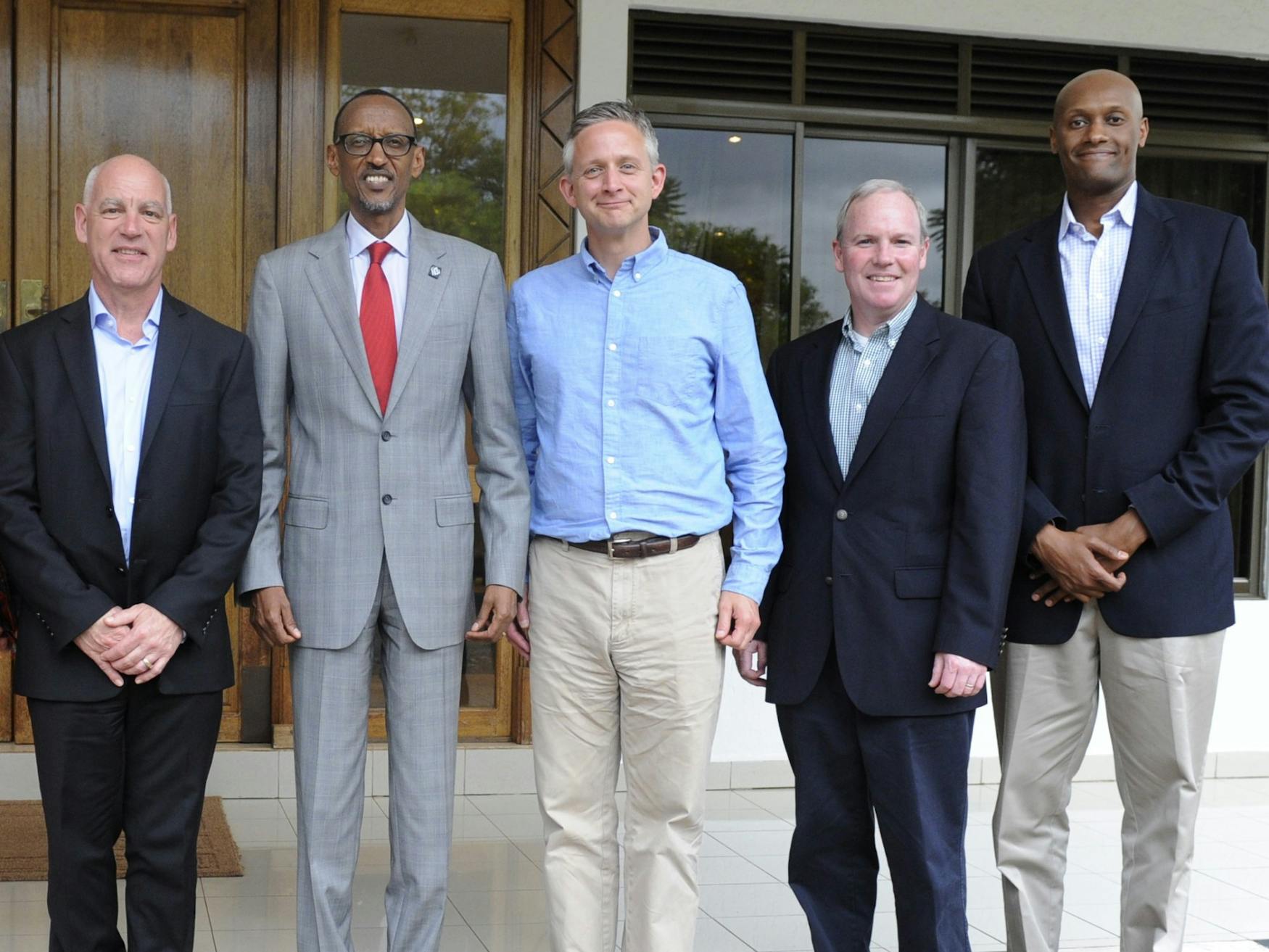Leadership with empathy, listening and a servant mindset
The journey, insight and advice of Kris Engskov, former personal aide to President Clinton and Starbucks President of U.S. Retail.
“Clinton became President in January, [my college friend and I] graduated in May and we just loaded up our cars and drove to Washington.”
“With no plan of what you were doing?”
“No plan … I remember it being very scary and very exciting at the same time,” Kris Engskov said, reflecting on the early days of his fascinating career in the public and private sectors.
In the latest episode of Voyager Talks, my self-produced podcast sharing the journey, insight and wisdom of premier business and political leaders, I sat down with Kris Engskov. He has a fascinating career in the public and private sectors, including serving as the personal aide to President Bill Clinton for nearly four years and later as a top executive at Starbucks and Aegis Living.
Our discussion began with his journey to the White House. As a senior in college, Engskov volunteered for then-Governor Clinton’s campaign and moved to D.C. after graduating. He networked around and landed a volunteer gig in the travel office of the White House and was later hired for a full-time position.
When I asked about his advice for a smart, driven college student about to enter the real world, he recalled his approach to the White House. “Decide what organization you want to be in,” he said. “Set your sights high, and then just focus on getting a foot in the door.” He explained that once you are in the door, even if as a volunteer or a gopher, you will get to know the team and be first in line for future opportunities. If you are in the right organization, your excitement, energy, creativity and the fact you are already an internal member will allow you to absolutely fly.
After Clinton left office, Engskov moved to Seattle and spent 17 years with Starbucks in multiple roles, including president of U.S. Retail where he led 170,000 employees across 8,300 stores, president of the Europe, Middle East and Africa division and Executive Vice President of Global Business Integration. He attributes his rise in the company partly to their training program for executives, which sent him to every level of the store hierarchy. Three months as a barista, three months as a shift manager and three months as a store manager were all humbling and difficult experiences that developed his emotional intelligence in immeasurable ways. This time spent working in the store alongside the hardworking staff also helped develop his approach as a servant leader. “I try to come to work with the mindset of how do I support [the front-line workers] and make their job easier and their life more fulfilling,” Engskov said.
From making lattes to leading Starbucks on a national and international scale, Engskov then pivoted to the healthcare industry and served as president of the leading assisted care company Aegis Living, before co-founding a home healthcare startup. Both Starbucks and Aegis are people-first organizations — a great fit for Engskov — which didn’t happen by accident. When choosing roles, he aimed to specifically take jobs that had a sense of mission, both in the work and in developing the teams he led.
Throughout the conversation, I aimed to gain insight into Engskov’s leadership philosophy and listening skills. “Listening is fundamental to leadership in a people-based organization,” he explained. In order to find the best solution and develop a team, reading between the lines of what’s being said and showing humility is critical. For Engskov, great leaders also constantly ask questions and genuinely listen to feedback, understand that the best ideas come from others and are able to be vulnerable and admit when they are wrong.
Engskov is one of the most incredible listeners I know, but he admitted that it was not always a strength of his. “You learn it when you’ve made a mistake,” he said, “I can’t tell you the number of times I should have been listening rather than talking, and I reflect on those times now and think to myself that was a miss”: a missed opportunity to learn, because you always learn more when you listen than when you talk. The importance of listening aside, this process of internal dialogue and reflection to improve yourself is a common theme across leaders who live intentionally and is something for which we can all strive.
As a final question, I always ask my guests about a new belief, behavior or habit that has improved their life. Engskov himself shared his efforts to be more purposeful with his learning and thinking in recent years. “I give myself dedicated time to think and read about things I’m curious about or want to learn more about … to advance my thinking in an intentional way.” An important part of this is avoiding being led by social media or the news; he is fully aware he can consume information all day and never actually advance his thinking in a meaningful way. As an example, when considering a career shift, he first educated himself by reading and studying in what he calls a self-guided “primer course” to understand the healthcare industry on a deeper level.
I walked away from this interview excited and inspired about many things, but Engskov’s lesson on the importance of being a lifelong learner and being disciplined and intentional about the information that you consume was especially impactful.
Listen to the full episode of Voyager Talks (available on Spotify, iTunes or as a link on @Voyager.Talks Instagram) to hear Engskov’s story in his own words.




Please note All comments are eligible for publication in The Justice.